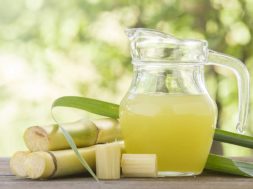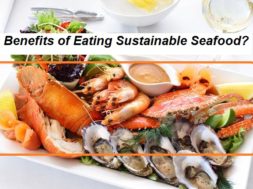Recently a good friend and I got into a phase of watching different movie documentary’s on Friday nights. It’s nice and relaxing at the end of our long work week to sip a glass of wine, or in my friend’s case, a bourbon and diet coke, and learn about something that affects our lives. In the last year we have watched everything imaginable from food to religion. But for the sake of this essay we will talk about the food we’re eating, or perhaps thought we were eating.
The awful truth, of course, is the more documentaries you watch, the more you become educated on what exactly is in and what’s not in the food we’re eating. It really wakes you up to the unfortunate truth of what a handful of top food producers have gotten away with when it comes to the health and well being of unknowing consumers.
Some of you may be very aware of what’s going on with our food, and others may not. I certainly have learned a lot in the last year and hope some of the below information will help to give some of you the ability to make better informed choices.
Organic Food – A Better Choice
Sales of organic fruits and vegetables have doubled in the past five years and for good reason. Some of the benefits are as follows:
Your body can fight disease, bacteria and viruses better when it is fed organic food.
Organic foods contain at least 50% more nutrients, vitamins, and minerals than non-organic foods.
Eating organically you will avoid growth hormones from entering your body that are in many foods we eat, like chicken.
Organic foods are lower in fat, and that helps to fight and prevent obesity.
Antibiotics found in non-organic foods are a direct cause of allergies.
Organic fruits and vegetables not only avoid pesticides, but taste better as well.
Organic foods safeguard against toxic metals like cadmium, lead and mercury.
Eating organic helps avoid estrogen dominance which, although more common in women can also affect men, causing such problems as infertility, erectile dysfunction, enlarged prostate, and certain types of cancer.
If you’re willing to do some creative shopping and cooking, you can enjoy the freshness and goodness of organic foods without breaking your food budget. These days there are lots of places to buy organic foods. Besides the supermarkets, you can find them in health food stores, specialty stores, co-ops, gourmet delis, farmers markets, community supported agriculture programs, convenience stores, and even vending machines. A few tips that can help are:
Join a co-op which is a member-owned business that is organic.
Join a buying club with others and buy in bulk to get discounts of up to 30 or 40 percent off.
When organic is on sale buy in bulk.
Buy fresh in-season organic fruits and veggies and freeze them.
When you enter a store grab discount fliers to see what organic food is on sale.
Clip any coupons you see on organic food.
The secret to making sure you’re buying organic fruits and vegetables is to read the labels:
If it has a 4-digit number then it is conventionally produced and may have been grown using fertilizers and pesticides.
If it has a 5-digit number beginning with an “8” then it is genetically modified. These truly scare me as we still do not know the full negative impact these may have on our bodies.
If it has a 5-digit number beginning with a “9” then it is organic and is the best for your body.
If you want to find the organic sources of food in your area just Google “organic & your town.” I think you will be amazed at what pops up.
Shop at Your Local Farmers Market
Farmers’ markets are great sources of fresh local produce. A just-picked tomato grown locally tastes better than a tomato that’s traveled 1,500 miles before reaching the supermarket shelf. Plus the sooner they are eaten then the more nutritious they are for your body. Ask the farmer if they are growing organically if it’s not already posted.
Ask the farmers a lot of questions and don’t be afraid to barter with them for a better price (especially if you buy in bulk). Buying from your local Farmers Market also helps sustain your community and keeps it thriving.
Buy a Share in a Community Supported Agriculture (CSA) Program
Over the last decade, Community Supported Agriculture (CSA) has become a popular way for consumers to buy local, seasonal food directly from a farmer. You can’t get any fresher than that. You’re getting it straight from the farm, often picked that morning. Most are organic and usually they have different drop off places to pick up your bag of food. Most cost about $300 to $400 upfront for a 24 to 26 week growing season. Not only are you supporting your local farmers, but you’re getting the best tasting, most nutritional food.
Grass Fed Beef – Healthier and Taste Better Too
Organically raised grass fed beef is simply much healthier. The cows are not kept in feed lots (in-humane conditions) full of bacteria (hello E. coli), and are not fed corn (higher in unhealthy saturated fats) and other foods that they would not naturally eat. They are never given growth hormones (human safety is under debate) to make them mature faster than they would have naturally.
It is a well-known fact that the food a cow eats affects the taste of its meat. Organic ground beef also taste better then regular beef. The most savory beef comes from cows that eat only grass, as this is the natural food that a cow is meant to eat. If you haven’t had a grilled grass fed burger lately you will be amazed at the taste.
Hormone Free Chicken is Healthy – Or is it?
Chicken is a fairly lean animal food, meaning it has a lower fat and higher protein ratio than other meats. The USDA prohibits poultry growers from giving hormones and steroids to chickens, however growers can still give their hormone-free antibiotics daily which serve the same purpose as hormones – to increase the growth rate (Say What!). So when you’re at the grocery store and see chicken labeled “hormone free,” it’s more than likely an example of how misleading labels make us think it’s safe (But it’s Not). If you are concerned about the amount of antibiotics fed to chickens, purchase poultry and eggs labeled with both free-range and no-antibiotic-added labels.
Soda Pop Side Effects
I will stick my neck out on this one and guess that most of you already know how awful soda pop is for us. Recently a friend of mine posted a really good graphic on Facebook called the “7 Side Effects of Soda by Dave Sommers.” It was one of those things I made a mental note to remember and will bullet it for you:
Phosphoric Acid – Weakens bones and rots teeth
Excessive artificial sweeteners makes you crave more
Caramel Color – Made from the chemical caramel, is purely cosmetic, it doesn’t add flavor yet is tainted with carcinogens
Formaldehyde – Carcinogen, it is not added in soda but when you digest aspartame, it will break down into 2 amino acids and methanol = formic acid + formaldehyde (diet sodas)
High Fructose Corn Syrup is a concentrated form of sugar, fructose derived from corn (and in 75% of food in grocery stores). It increases body fat, cholesterol and triglycerides and it also makes you hungry. (OMG!!!)
Potassium Benzoate – preservative that can be broken down to benzene in your body. Keep your soda in the sun and benzene = carcinogen
Food Dyes – impaired brain function, hyperactive behavior, difficulty focusing, lack of impulse control.
Need I say more on soda pop? Just drink it sparingly for good health, ok.
Juicing: Your Key to Radiant Health
When we watched the documentary “Fat, Sick, and Nearly Dead” a Joe Cross Film, I had no idea how many nutrients our bodies are lacking because of the state of our food. I also had no idea that by juicing you can consume optimal amounts of organic fruits and vegetables in an efficient manner giving your body what it needs to heal and stay healthy.
Cooking and processing food destroys the nutritional value by altering their shape and chemical composition. Virtually every health authority recommends that we get 6-8 servings of fruits and vegetables per day. Juicing is an easy way to virtually guarantee that you will reach your target for vegetables. The only downside is the clean up. There are tons of good online articles and great books on juicing for you to educate yourself on. I am firmly convinced that juicing is the final key to giving you a radiant, energetic life, and truly optimal health.





